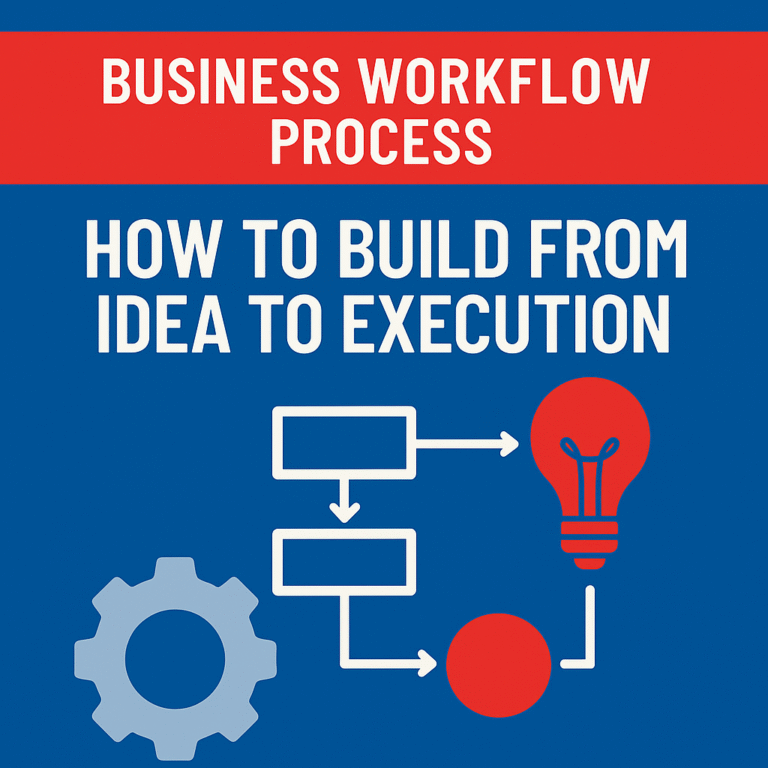Workflow Wednesday
Delegate with systems, and you start to notice a shift—your to-do list feels lighter, your best ideas actually make it onto the calendar, and you’re no longer the only person who can keep things moving. Skip it, and those same tasks you “save” by doing yourself will quietly stall the bigger work you’ve been meaning to get to.
Too many business owners, especially those building their company alongside a full-time job, fall into the trap of doing everything themselves. On the surface, it feels responsible. You’re saving money, keeping control, and making sure it’s “done right.”
But here’s the truth: when you keep every task on your plate, you’re not saving anything. You’re paying in hidden costs—missed opportunities, slower progress, mental fatigue. I learned that lesson the hard way in my early Backbone America days. I was designing course materials at midnight, troubleshooting tech before breakfast, and manually doing work that could have been automated or handed off. The more I held on, the more I became my own bottleneck.
If you’ve ever wondered why your big ideas never seem to get the time they deserve, it’s probably because your hands are full of work someone—or something—else could be handling for you.
The Real Cost of Doing Everything Yourself

When I first launched Backbone America, quality mattered to me more than anything else. It still does. But in those early days, I held on to more than I should have—not because I thought I was the only one who could do it, but because I wanted to make sure the work met my standards and I didn’t yet have the right people in place to trust it to. I wrote the emails, built the landing pages, processed the orders.
Looking back, I can see that holding too much was less about perfectionism and more about control. Without a team I trusted, letting go meant gambling with my own reputation. These days, I’ve learned that the real work is in hiring well, documenting expectations, and giving myself the mental release to step back. That shift has been just as valuable as the systems themselves.
Don’t Let It Cost You Opportunities
The cost wasn’t just longer work hours. It was the big ideas I never acted on because my head was buried in the small stuff. And the marketing campaign I never launched because I was too busy formatting course slides. It was saying “next week” to projects that could have transformed my business because today was already swallowed by admin.
And then there’s the financial cost—the money I thought I was saving by doing it all myself. In reality, that “saved” money was often a loss in disguise: lost sales from projects delayed, lost visibility from marketing left undone, and lost momentum when opportunities passed me by. The hours I spent on low-value tasks could have been invested in revenue-generating work that far outweighed the cost of bringing in help sooner.
The reality is this: every hour you spend on work that doesn’t require you is an hour you’ve traded away from building something bigger. And while it might feel harmless in the moment, that trade compounds over time. Six months later, you realize you’re still stuck in the same cycle—not because you lack talent or drive, but because you’ve been too busy to use them where they count most.
What to Delegate
One of the biggest mistakes I made early on was holding on to too much for too long. Then when I finally handed things off, it was without a real plan. That meant I sometimes delegated junk tasks—busywork that didn’t need to be done in the first place. Meanwhile, I was still keeping the repetitive tasks on my own plate. It may have given me some relief not having to do unimportant work, but paying someone else to handle tasks that didn’t make sense was just as wasteful.
Without a clear picture of what truly moved the needle for Backbone America, I was spending money without getting real returns. And still, I was drowning in the work that needed to be done, like bookkeeping, but that didn’t make my business any money.
Administrative Support
The easiest place to begin is with tasks that don’t require your unique expertise. If someone else can do it just as well—or better—with the right guidance, it doesn’t belong on your daily plate. When I finally started delegating pieces of Backbone America, I didn’t hand off the strategy or the big creative direction. I started small: adding images to blog posts, scheduling email newsletters, and formatting workbooks. These were tasks that took me away from my high-impact work but didn’t require me to be the one doing them.
Specialized Work
It’s also worth looking at specialized work outside your lane. In the beginning, I would spend hours trying to troubleshoot errors on my website or setting up marketing campaigns—tasks I could technically learn but didn’t want to master. Hiring a professional for a few hours not only gave me better results, it saved me days of frustration and let me focus on what I do best: building systems and creating resources for my audience.
Repetitious Tasks
Then there’s repeatable customer interactions—things like onboarding emails, follow-up sequences, or event reminders. Once I documented the tone and flow I wanted, these became easy to delegate or automate. Instead of rewriting the same message 50 times, I now have templates and triggers doing the heavy lifting.
The point isn’t to offload everything. It’s to free up the mental and calendar space for the work only you can do—the vision, strategy, and decisions that move your business forward. Start with one task, build the process, and let it go. That one decision will often give you more momentum than a full week of “catching up.”
How to Delegate with Systems

The first step is documenting the process. I don’t mean a vague set of bullet points—I mean clear, step-by-step instructions or a quick screen-recorded walkthrough that shows exactly what you expect. In Backbone America, I do this for everything from formatting workbooks to updating course content. It means I can bring in someone new without reinventing the wheel every time.
Next, choose tools that keep tasks visible and on track. I lean heavily on Zoho’s ecosystem—Zoho Projects for tracking, Zoho Flow for automation, Zoho WorkDrive for storing templates and SOPs. But the tool isn’t the point. What matters is that everyone knows where to find what they need and how to signal when something’s complete.
Then, assign ownership clearly. Every delegated task should have one person responsible for it—no “shared” ownership where it’s unclear who’s accountable. It’s better to have one person responsible for completion and quality than to have three people wondering who’s supposed to do what.
Finally, integrate automation where possible. If a VA needs to upload blog images, set up a shared folder that automatically syncs to your content library. If your bookkeeper needs monthly reports, have them generated and sent automatically. In my business, these small automations keep people working at their highest value instead of spending time on prep work.
When delegation and systems work together, you’re not just getting tasks off your desk—you’re building a business that runs smoothly, no matter who’s on your team.
The Compound Benefits
The first win you notice after delegating with systems is obvious: time. But the real payoff shows up in how that time compounds over weeks and months.
When I freed myself from tasks like formatting blog posts and manually sending email sequences, it didn’t just save me a couple of hours a week. It gave me mental bandwidth. Suddenly, I could map out new offers, test marketing ideas, and follow through on collaborations I’d been putting off. Those small pockets of reclaimed time stacked into a level of progress I hadn’t been able to reach before.
Systems also make delegation stick. Without them, you spend time fixing mistakes or re-explaining instructions—erasing the gains you made. With them, you get consistent results without hovering. This consistency builds trust in your team, which makes it easier to let go of more tasks without second-guessing.
And there’s a financial ripple effect, too. Every hour not buried in low-value work gives me an hour I can spend on revenue-generating activities—like building automation packages for clients or refining digital products. Over time, that shift has turned delegation from a cost into one of the most profitable choices I’ve made for Backbone America.
The more you delegate with systems, the more your business begins to feel like the one you imagined at the start—streamlined, sustainable, and not dependent on you being “on” 24/7.
Getting Started This Week
Big changes start small. You don’t need to overhaul your entire workload to see a difference—you just need one win to prove delegation can work for you.
Pick one recurring task you handle every week that doesn’t require your unique expertise. Maybe it’s scheduling blog posts, sending invoice reminders, or updating your CRM. Document the process in a way someone else could follow without asking questions—screenshots, a quick video, or a written step-by-step guide.

Then, decide who or what will take it over. This could mean assigning it to a VA, hiring a freelancer for a few hours a month, or setting up an automation that removes the need for human input entirely.
Put it in motion this week. Once you see that task consistently handled without your direct involvement, you’ll have proof that your business can run smoother without you touching everything. From there, you can start building the systems to hand off more.
Let’s Build This Together
The real cost of doing everything yourself isn’t just the time you lose—it’s the growth you never see because you were too busy keeping the wheels turning. Delegation, when paired with the right systems, gives you more than hours back. It gives you the headspace to think bigger, act faster, and move your business toward the freedom you pictured when you started.
If you’re ready to stop trading all your energy for tasks someone else could handle, start building the systems that make delegation work for you.
Join my mailing list, and you’ll get strategies you won’t find in blog posts—frameworks, templates, and behind-the-scenes breakdowns of how to set up a business that runs without consuming every waking hour. Sign up here and start turning your time into progress that compounds.






